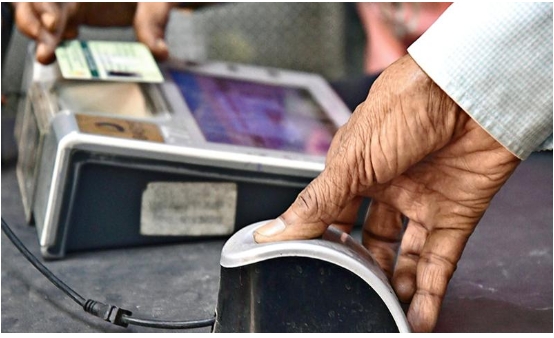The service was not available for more than 54 hours till September this year due to issues like delay in sending OTP and “minor fluctuations” faced by the server, node agent UIDAI said in its response to RTI.
Aadhaar authentication services were down for more than 54 hours in 2023, representing a major disruption to the world’s largest identification platform.
In a Right to Information (RTI) response to The Hindu, the Unique Identification Authority of India (UIDAI) revealed that there was a delay in sending one-time passcodes (OTPs) via SMS and it was “irrelevant” to continuity as well. As “minor fluctuations” in the authentication process from Aadhaar servers were up for periods of several hours throughout the year until September, with a total of 54 hours and 33 minutes of downtime.
Aadhaar authentication is crucial to the operation of the 12-digit ID: While ‘cards’ are typically issued to Indian residents, authentication for access to services only occurs when someone enters their fingerprint or enters an SMS access code to access rations or Property verification. Identification to access public services.
UIDAI did not respond to emailed queries about the downtime its servers experienced.
Technical uncertainty
The authentication – which has multiple uses such as Aadhaar-enabled ATMs and daily attendance of employees in some government offices – relies on UIDAI-run servers linked to telecom operators, and the information may not always work when needed. Prolonged and frequent disruptions create uncertainty about the reliability of Aadhaar services when needed.
Since the launch of Aadhaar in 2009, more than 100 billion authentications have been performed.
Issues of access and transparency over technical glitches have long plagued Aadhaar, said Ritika Khera, an economics professor at IIT Delhi who has studied the ID program closely for years. The data obtained by The Hindu “confirms the existence of a technical problem with the system,” Dr. Khera wrote in an email. “People are being punished and deprived of their rights because of UIDAI’s inefficiency,” she accused, citing fieldwork she was involved in where “server problems” continued to occur.
Dr Khera said the UIDAI should publish these disturbances for all to see on its website. So far, information about server outages is only shared with agencies that have access to these systems to perform authentication processes, when outages occur.
For more information visit at https://happenrecently.com/zepto/?amp=1
















